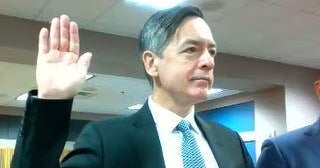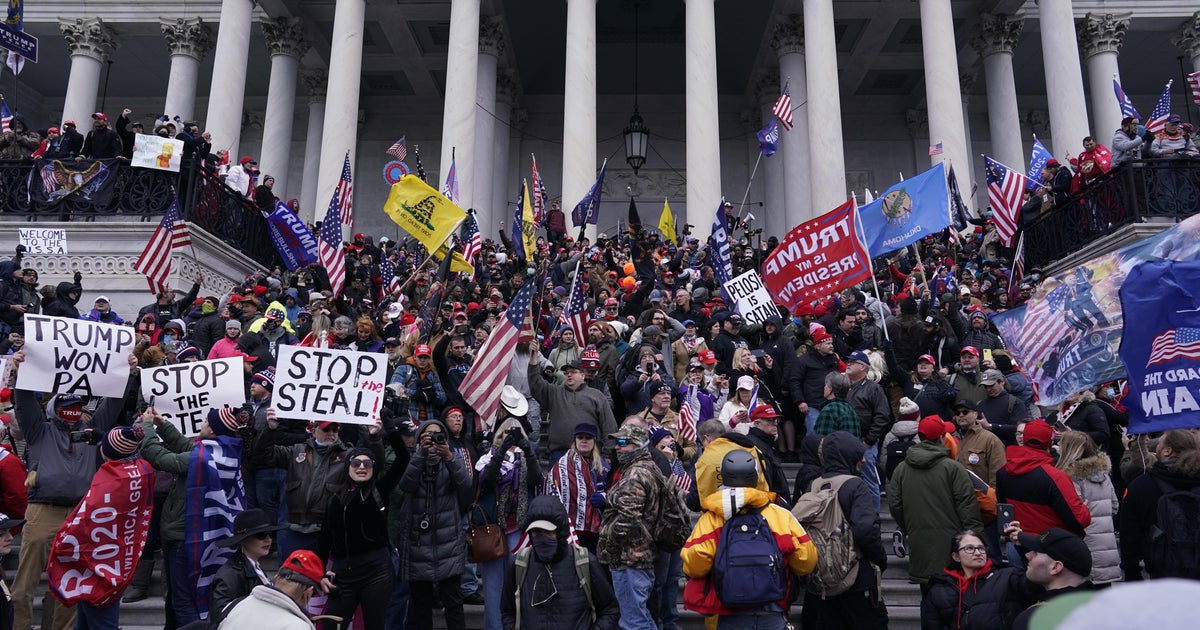Prosecutors and Defense Duel in Closing Arguments of Politically Charged Trial

WASHINGTON — Prosecutors and a defense lawyer put forward starkly opposing views on Friday in closing arguments for the politically charged trial of Michael Sussmann, a cybersecurity lawyer with ties to Hillary Clinton’s 2016 presidential campaign.
The case against Mr. Sussmann involves a narrow charge — an accusation of lying to the F.B.I. in a 2016 meeting — but is freighted with partisan overtones. It is also a test of the special counsel who brought it, John H. Durham, because it is his first case to go to trial since he was appointed three years ago to scour the Trump-Russia investigation for any wrongdoing.
Two prosecutors told a jury that there was no doubt that Mr. Sussmann had lied to the F.B.I. to conceal his clients — including the Clinton campaign — at the September 2016 meeting, which focused on suspicious data that cybersecurity experts said suggested the possibility of a covert communications channel between Russia and someone close to Donald J. Trump.
“It wasn’t about national security,” said one of the prosecutors, Jonathan Algor. “It was about promoting opposition research against the opposition candidate — Donald Trump.”
But a defense lawyer, Sean M. Berkowitz, portrayed the case as riddled with uncertainties — including about what Mr. Sussmann actually said, whether it was false and whether it mattered if he was there on behalf of clients since the F.B.I. would have investigated the tip regardless. Each was a path to find reasonable doubt and vote to acquit, he said.
“Mr. Sussmann’s liberty is at stake,” he said. “The time for political conspiracy theories is over. The time to talk about the evidence is now.”
A verdict is expected as early as Tuesday.
The case centers on odd internet data that cybersecurity researchers discovered in 2016 after it became public that Russia had hacked Democrats and Mr. Trump encouraged the country to hack Mrs. Clinton’s emails. The researchers said the data might reflect a covert communications channel using servers for the Trump Organization and Alfa Bank, a Kremlin-linked bank.
The researchers began working with Rodney Joffe, a technology executive who was an expert in the type of internet data they were scrutinizing. Mr. Joffe brought the suspicions to Mr. Sussmann, who at the time represented the Democratic National Committee on matters related to Russia’s hacking of its emails. A partner at Mr. Sussmann’s law firm, Marc Elias, was the Clinton campaign’s general counsel.
Mr. Sussmann and Mr. Joffe tried to get reporters — including Eric Lichtblau, then of The New York Times — to write about the matter, arguments in the trial showed. Mr. Sussmann continued to inform Mr. Elias about those efforts and discussed the matter with an opposition research firm the Clinton campaign had hired through Mr. Elias called Fusion GPS; the firm drafted a paper about Alfa Bank’s Kremlin ties that Mr. Sussmann later gave the F.B.I.
Mr. Sussmann logged those efforts in law firm billing records as time spent working for the Clinton campaign, Mr. Durham discovered.
On Sept. 18, 2016, soon after receiving an email claiming that Mr. Trump was upset about a Russia-related article that was soon to be published, Mr. Sussmann texted James A. Baker, the F.B.I.’s general counsel, and asked for a meeting the next day. He indicated that he was coming not on behalf of any client, but to help the F.B.I.
Mr. Durham’s team has accused Mr. Sussmann of making the same claim when he met the next day with Mr. Baker. In reality, prosecutors argue, Mr. Sussmann was concealing two of his clients — Mr. Joffe and the Clinton campaign.
Mr. Algor told the jury on Friday that the effort was a conspiracy to engineer an “October surprise,” meaning a game-changing revelation late in a campaign, by getting the F.B.I. to open an investigation so reporters would write about it.
The F.B.I. — which had already opened its investigation scrutinizing possible ties between associates of Mr. Trump and Russia on other grounds — briefly looked at the Alfa Bank suspicions and quickly dismissed them.
In late October, Slate published an article about the matter, but it did not mention any F.B.I. investigation. That same day, The Times published an article co-written by Mr. Lichtblau that mentioned the Alfa Bank suspicions but reported that the F.B.I. had so far found no conclusive or direct link between Mr. Trump and the Russian government.
The closing arguments focused on whether Mr. Sussmann repeated what he had said in his text message to Mr. Baker at their meeting the next day — a crucial technicality, because he is charged only for what he purportedly said at the meeting itself.
Mr. Algor and another prosecutor, Andrew DeFilippis, told the jury that the evidence left no doubt that Mr. Sussmann repeated to Mr. Baker’s face that he was not there on behalf of any client.
But Mr. Berkowitz pointed to Mr. Baker’s varying recollections of that meeting. And he noted that Mr. Durham had been investigating Mr. Baker for an unrelated offense but did not charge him, insinuating that the witness had an incentive to remember what the prosecutor wanted to hear: “It’s no wonder he delivered on the stand.”
Mr. Berkowitz also argued that it was true that Mr. Sussmann was not there on behalf of any client. While Mr. Sussmann had two clients with an interest in Alfa Bank, the defense lawyer said, Mr. Sussmann was not advocating that the F.B.I. take some step on their behalf — or any step at all.
Countering that idea, prosecutors emphasized that on Sept. 13, Mr. Sussmann purchased thumb drives at Staples that he later expensed to the Clinton campaign; at the Sept. 19 meeting, he gave thumb drives to the F.B.I. Mr. DeFilippis called that “damning evidence.”
Mr. Berkowitz mocked that evidence — a Staples receipt, he noted — saying it was a time when Mr. Sussmann was doing all kinds of work for the campaign. He also emphasized that Mr. Sussmann had not expensed to the campaign his taxi rides for the F.B.I. meeting, nor had he logged an “F.B.I. meeting” in billing records, as was his practice for such meetings.
And Mr. Berkowitz cited testimony by Mr. Elias and Mrs. Clinton’s campaign manager, Robby Mook, that they did not direct or authorize Mr. Sussmann to go to the F.B.I. and did not see that step as in the interest of the campaign. They testified that they had just wanted The Times to publish an article; Mr. Baker testified that the F.B.I. asked Mr. Lichtblau to hold off on publishing anything so it could investigate first.
Checkout latest world news below links :
World News || Latest News || U.S. News
Source link



